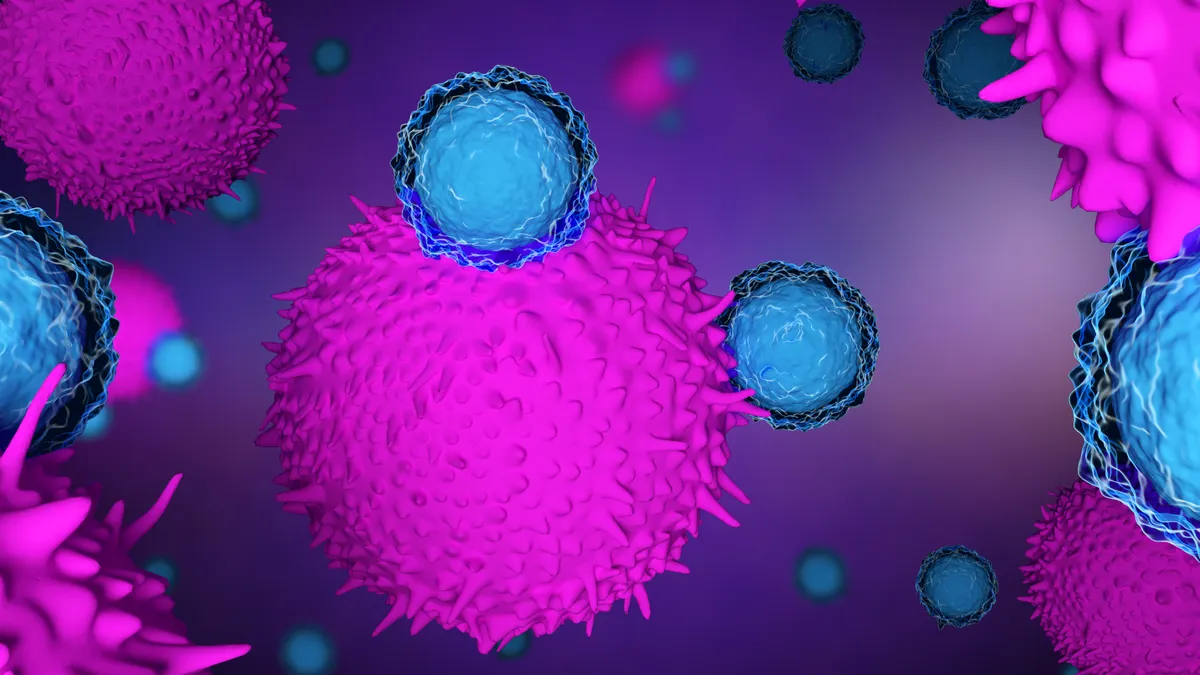An experimental cancer vaccine fell short of its main objective in a Phase 3 trial in melanoma, causing shares of the shot’s developer, IO Biotech, to fall by double digits on Monday.
IO Biotech, however, still believes the vaccine performed well enough to warrant a potential approval consideration from U.S. regulators. The company noted how the study, which compared a regimen of its shot and Merck & Co.’s immunotherapy Keytruda to Keytruda alone, failed by the slimmest of margins. Executives also pointed to other analyses showing potentially stronger benefits among those who hadn’t previously received drugs like Keytruda or aren’t likely to respond to them.
“It was a very narrow miss, just by a hair,” said Mai-Britt Zocca, IO’s CEO, on a Monday conference call with Wall Street analysts.
Called Cylembio, IO’s cancer vaccine consists of engineered peptides that are supposed to provoke an immune response to certain proteins expressed on tumor cells. Those proteins are two of the immune “checkpoints,” PD-L1 and IDO1, long studied by drugmakers.
Cylembio is designed as an “off-the-shelf” vaccine, which would be simpler to produce than the “personalized” shots being developed by Moderna, BioNTech and others.
IO Biotech’s trial enrolled more than 400 people whose newly diagnosed melanoma couldn’t be surgically removed or had spread to other parts of the body. Study participants were randomized to receive Keytruda alone or Keytruda plus Cylembio. The company’s primary objective was to prove the Cylembio-Keytruda combination could hold tumors in check longer than Keytruda alone.
According to the company, people who got the vaccine-immunotherapy combination had a 23% lower relative risk of dying or their disease progressing than those who got Keytruda alone, which didn’t meet the threshold of statistical significance.
People who tested negative for a protein linked to immunotherapy responses had a 46% relative risk reduction, IO Biotech said. That analysis was part of IO’s pre-specified statistical plan, indicating that regulators may view it more favorably.
Yet another analysis of people who hadn’t previously received Keytruda or other drugs like it wasn’t part of that plan. IO Biotech’s finding that those enrollees had a 26% relative risk reduction in disease progression or death is considered “nominal,” then, meaning FDA reviewers would likely tread cautiously.
IO executives said they will meet with the FDA in the third quarter to discuss the findings, and hope to seek approval by the end of the year.
Investors appear skeptical of the company’s chances, though. IO Biotech’s stock price fell by more than 20% during Monday morning trading, adding more losses for a company that’s lost most of its value since going public in 2021.
Zocca said the company had closed the second quarter with $28 million in cash, providing it with enough to finance operations through the first quarter of 2026. The company needs positive study data as well as a successful FDA submission to unlock a 15 million euro, or $17.4 million, tranche of a loan it has secured from the European Investment Bank.
















